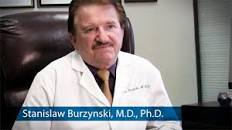
Diagnosed with SMM, SPB, or MGUS?
Learn how you can stall the development of full-blown Multiple Myeloma with evidence-based nutritional and supplementation therapies.
Click the orange button to the right to learn more.
- You are here:
- Home »
- Blog »
- Pre-Myeloma »
- Prevent Smoldering Myeloma – Multiple Myeloma
Prevent Smoldering Myeloma – Multiple Myeloma

“However, most patients eventually relapse and often demonstrate multiple drug resistance. Therefore there is still an urgent and unmet need to define the molecular mechanisms of resistance for available drugs in order to enhance the use of existing treatments and design more effective therapies.”
Hi David- In the Spring of 2017 just as I was retiring, I was shocked to be diagnosed with smoldering multiple myeloma (SMM) and that I might have multiple myeloma some day. I have been open to alternative medicine and searched online for more help in that direction and found PeopleBeatingCancer.org.
My blood levels were good enough to not need treatment right away. My super good diet and your supplement and other suggestions, I think helped much keeping my blood levels good enough to still not need treatment after 3 1/2 years.
I subscribed to the Pre-MM Cancer Coaching Program and have followed many of the supplement tips since and my blood numbers have barely moved at all which means no treatment.
As we both know nearly everyone thinks only radiation or chemo when they think cancer. These therapies will eventually lead to MDR, multi-drug resistance. You have helped to prove there’s much more to that landscape.
Your big picture blending of the best of naturopathic, allopathic and complementary (like Antineoplaston Therapy, The Burzynski Research Institute) is a is the best I know of for MM patients and survivors.
Oh, one food you might want to look at is bitter melon, it cured my wife’s pre diabetes it seems and gives me a healthy feeling. I have other supplements like IP6 I take I’d be glad to share with you.
Thanks much, Dave and all- Ron-
Hi Ron-
Thanks. There has been a trend in conventional MM oncology to encourage smoldering multiple myeloma patients to begin chemotherapy as this has been shown to reduce the risk of SMM becoming full-blown MM.
While I agree that beginning chemo may slow the progress from smoldering multiple myeloma to MM, I also know that beginning chemotherapy will begin the steady march toward multi-drug resistance.
The important thing for you to know is that you are not only managing your SMM, you are doing so with no toxicity, no march toward MRD.
Thanks for mentioning bitter melon. I have posted a study about this possible therapy below.
I also posted an article about “multi-drug resistance” or MDR. This is what all pre-MM or full MM patients must avoid. You have been successfully avoiding all toxicities since your SMM diagnosis in 2017.
Well done.
There has been a trend in conventional MM oncology to encourage smoldering multiple myeloma patients to begin chemotherapy as this has been shown to reduce the risk of SMM becoming full-blown MM. While I agree that beginning chemo may slow the progress of SMM to MM, I also know that beginning chemotherapy will begin the steady march toward multi-drug resistance.
The important thing for you to know is that you are not only managing your smoldering multiple myeloma , you are doing so with no toxicity, no march toward MRD.
To Learn More About Smoldering Multiple Myeloma- click now
Let me know if you have any questions.
Thanks Ron,
David Emerson
- MM Survivor
- MM Cancer Coach
- Director PeopleBeatingCancer
Recommended Reading:
- Multiple Myeloma Relapse- My Onc. is Pushing a Stem Cell Transplant
- Multiple Myeloma Remission- More Chemotherapy or No?
- How Long Can a Young Person Live with Multiple Myeloma?
Drug resistance in multiple myeloma
“Multiple myeloma (MM, plasma cell myeloma) is a malignant hematologic disease characterized by the clonal proliferation of malignant plasma cells.
The treatment of MM has changed dramatically in recent years, with the introduction of new drugs into therapeutic strategies, both in the front line setting and in relapsed refractory disease.
However, most patients eventually relapse and often demonstrate multiple drug resistance. Therefore there is still an urgent and unmet need to define the molecular mechanisms of resistance for available drugs in order to enhance the use of existing treatments and design more effective therapies.
Genetic abnormalities are well known to play a central role in MM resistance to available drugs, and epigenetic aberrations mainly affecting the patterns of DNA methylation and histone modifications of genes, especially tumor suppressors, can be involved in the resistance mechanism.
Moreover, defects in the mechanisms of apoptosis, senescence and DNA repair could also contribute to drug resistance.
In addition, mutations or alterations in the expression of the drug target can influence response to therapy. Achieving a better understanding of the pathways and protein expression involved in MM drug resistance and the development of novel therapeutic strategies are important goals for further progress in the treatment of MM…”
Bitter melon extracts enhance the activity of chemotherapeutic agents through the modulation of multiple drug resistance.
“Here, we determined BME effects on anticancer activity and bioavailability of doxorubicin (DOX) in colon cancer cells. BME enhanced the effect of DOX on cell proliferation and sensitized the cells toward DOX upon pretreatment. Furthermore, there was both increased drug uptake and reduced drug efflux. We also observed a reduction in the expression of multidrug resistance conferring proteins (MDRCP) P-glycoprotein, MRP-2, and BCRP…”


